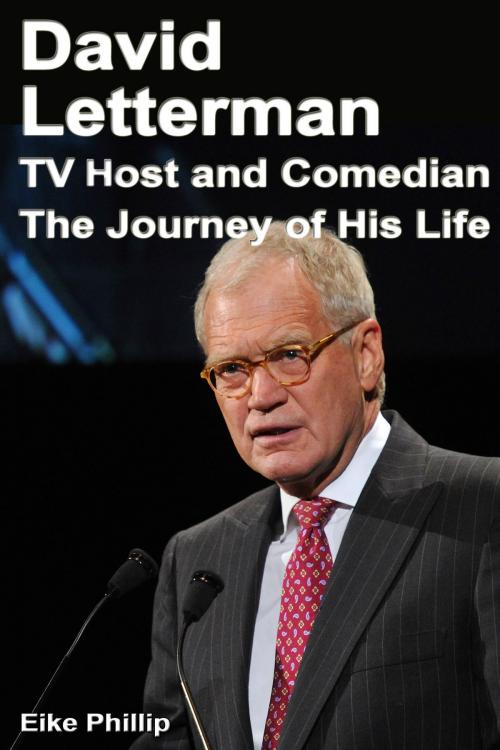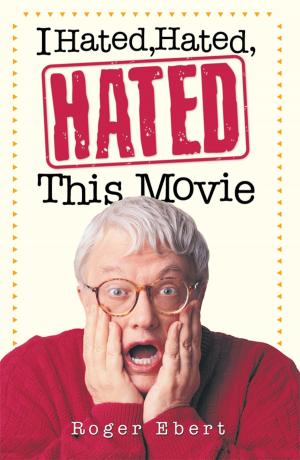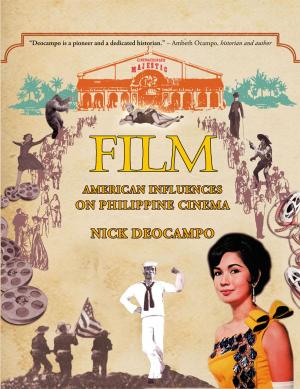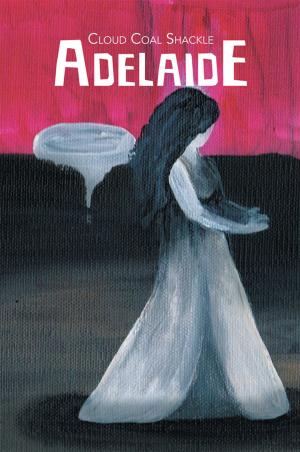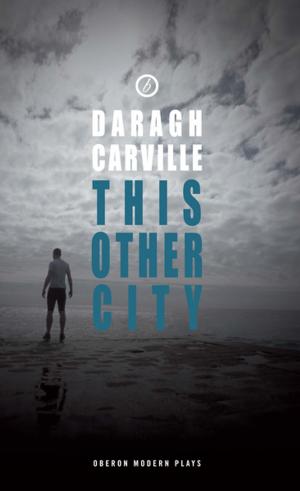| Author: | Eike Phillip | ISBN: | 1230000226595 |
| Publisher: | Eike Phillip | Publication: | March 19, 2014 |
| Imprint: | Language: | English |
| Author: | Eike Phillip |
| ISBN: | 1230000226595 |
| Publisher: | Eike Phillip |
| Publication: | March 19, 2014 |
| Imprint: | |
| Language: | English |
Television personality and talk show host David Letterman was born in Indianapolis, Indiana, to Harry Joseph Letterman, a florist, and Dorothy, a church secretary who now appears regularly as a correspondent on his late-night talk show. He has two sisters, Janice and Gretchen.
Letterman is best known for his gap-toothed self-mockery, and his brash, wry, somewhat cynical sense of humor. His unconventional demeanor and sense of humor attracted a cult following, which has gone on to define the young, hip, media-savvy generation that is his main audience, and inspire countless comedians and talk show hosts who have followed him.
Letterman studied radio and television at Ball State University, in Muncie, Indiana (B.A. 1969). He worked in Indianapolis as a radio talk-show host, the host of a children's program and a late-night movie, a news anchor and as a television weatherman, where his brand of humor was already evident, if not necessarily appreciated. One night he reportedly upset his bosses when he congratulated a tropical storm on being upgraded to a hurricane.
Big Break
In 1975, Letterman moved to Los Angeles and wrote material for popular sitcoms, including Good Times. His big break came when he began appearing on The Tonight Show with Johnny Carson, whom he has since referred to as his mentor. In 1978, he became Carson's regular guest host, and in 1980, he was offered his own show, the daytime David Letterman Show. The show only lasted for three months, but was a critical success, and convinced NBC-TV to give the young comedian a late-night show following Carson's.
'Late Night with David Letterman'
The late-late show hour was well-suited to Letterman's brash and quirky humor. Late Night with David Letterman soon became popular with a young audience by mixing the usual talk-show ingredients of celebrity guests and music with his irreverent manner and zany comic stunts.
Letterman's signature features include The Top Ten List, Stupid Pet Tricks (along with its companion, Stupid Human Tricks), Viewer Mail and pencils tossed at the camera and at the set behind him, "breaking" the non-existent glass with a cued crash sound. He is also known for his parody sketches that target the obviously weak acting abilities of his bandleader Paul Schaffer (and other members of The World's Most Dangerous Band), stage-hand Biff Henderson and general odd-ball Larry Bud Melman.
'The Tonight Show' Controversy
After NBC chose Jay Leno as the replacement for the retiring Johnny Carson in 1993 -- a position Letterman had publicly desired -- Letterman moved to CBS. He signed a lucrative deal to host The Late Show with David Letterman, which airs opposite The Tonight Show with Jay Leno.
He also founded his own production company, Worldwide Pants, that same year, which bought a stake in his new show.
His displeasure with NBC executives was fodder for his monologues, and when they blocked him from transferring regular features of his show to CBS (claiming it was NBC's "intellectual property") that, too, was mocked on air. The years that followed this head-to-head competition spawned a book and cable movie documenting the late-night talk show "wars." Letterman has received several Emmys for both writing and for his talk show hosting duties.
Surgery
On January 14, 2000, fans were shocked to learn that Letterman underwent quintuple heart bypass surgery. In typical Letterman fashion, the recovering patient joked that "in addition to rerouting the arteries, they also installed an E-Z pass." Letterman's first post-op show aired on February 21, featuring Regis Philbin, Jerry Seinfeld, Robin Williams (wearing medical scrubs) and eight members of the team who took care of Letterman during his stay in the hospital.
Success with CBS
In December 2006, Letterman renewed his contract with CBS, agreeing to host The Late Show with David Letterman through the fall of 2010. In 2007, he was ranked as No. 17 on the Forbes list of richest men in the entertainment industry, making an estimated $40 million that year. In 2009, Forbes also listed Letterman as No. 14 on their list of most powerful personalities in entertainment.
The magazine cited Letterman's Peabody Award-winning company, Worldwide Pants, as one of the secrets behind his current wealth and power; in addition to Letterman's show, the company has produced successful comedies such as Everybody Loves Raymond and The Late Late Show with Craig Ferguson.
Quick Takes: David Letterman's Long Run
David Letterman and Craig Ferguson have signed contracts with CBS that will keep their shows, "Late Show" and "The Late Late Show," respectively, on the air through 2014. Letterman is set to become the longest-serving late-night TV host in history, surpassing Johnny Carson's 30-year run on "The Tonight Show."
What sets Letterman's run apart from Carson's is that it is divided into two distinct sections: his original "Late Night With David Letterman" run on NBC, which lasted from 1982 until 1993, and his CBS run, which began in late 1993 and is still going. Carson began his "Tonight Show" gig in 1962 and worked there continuously until 1992.
"David Letterman is a late-night legend with an iconic show and Craig Ferguson continues to evolve the genre in exciting and innovative ways," said CBS Entertainment President Nina Tassler in a statement.
Ferguson's "Late Late Show" has charted its own late-night course since its premiere in 2005, with the Scottish-born host frequently tearing up the accepted format by rearranging the order of the show, having themed episodes and delivering unscripted monologues. The show has received Peabody Awards and an Emmy nomination, and with the new con
Television personality and talk show host David Letterman was born in Indianapolis, Indiana, to Harry Joseph Letterman, a florist, and Dorothy, a church secretary who now appears regularly as a correspondent on his late-night talk show. He has two sisters, Janice and Gretchen.
Letterman is best known for his gap-toothed self-mockery, and his brash, wry, somewhat cynical sense of humor. His unconventional demeanor and sense of humor attracted a cult following, which has gone on to define the young, hip, media-savvy generation that is his main audience, and inspire countless comedians and talk show hosts who have followed him.
Letterman studied radio and television at Ball State University, in Muncie, Indiana (B.A. 1969). He worked in Indianapolis as a radio talk-show host, the host of a children's program and a late-night movie, a news anchor and as a television weatherman, where his brand of humor was already evident, if not necessarily appreciated. One night he reportedly upset his bosses when he congratulated a tropical storm on being upgraded to a hurricane.
Big Break
In 1975, Letterman moved to Los Angeles and wrote material for popular sitcoms, including Good Times. His big break came when he began appearing on The Tonight Show with Johnny Carson, whom he has since referred to as his mentor. In 1978, he became Carson's regular guest host, and in 1980, he was offered his own show, the daytime David Letterman Show. The show only lasted for three months, but was a critical success, and convinced NBC-TV to give the young comedian a late-night show following Carson's.
'Late Night with David Letterman'
The late-late show hour was well-suited to Letterman's brash and quirky humor. Late Night with David Letterman soon became popular with a young audience by mixing the usual talk-show ingredients of celebrity guests and music with his irreverent manner and zany comic stunts.
Letterman's signature features include The Top Ten List, Stupid Pet Tricks (along with its companion, Stupid Human Tricks), Viewer Mail and pencils tossed at the camera and at the set behind him, "breaking" the non-existent glass with a cued crash sound. He is also known for his parody sketches that target the obviously weak acting abilities of his bandleader Paul Schaffer (and other members of The World's Most Dangerous Band), stage-hand Biff Henderson and general odd-ball Larry Bud Melman.
'The Tonight Show' Controversy
After NBC chose Jay Leno as the replacement for the retiring Johnny Carson in 1993 -- a position Letterman had publicly desired -- Letterman moved to CBS. He signed a lucrative deal to host The Late Show with David Letterman, which airs opposite The Tonight Show with Jay Leno.
He also founded his own production company, Worldwide Pants, that same year, which bought a stake in his new show.
His displeasure with NBC executives was fodder for his monologues, and when they blocked him from transferring regular features of his show to CBS (claiming it was NBC's "intellectual property") that, too, was mocked on air. The years that followed this head-to-head competition spawned a book and cable movie documenting the late-night talk show "wars." Letterman has received several Emmys for both writing and for his talk show hosting duties.
Surgery
On January 14, 2000, fans were shocked to learn that Letterman underwent quintuple heart bypass surgery. In typical Letterman fashion, the recovering patient joked that "in addition to rerouting the arteries, they also installed an E-Z pass." Letterman's first post-op show aired on February 21, featuring Regis Philbin, Jerry Seinfeld, Robin Williams (wearing medical scrubs) and eight members of the team who took care of Letterman during his stay in the hospital.
Success with CBS
In December 2006, Letterman renewed his contract with CBS, agreeing to host The Late Show with David Letterman through the fall of 2010. In 2007, he was ranked as No. 17 on the Forbes list of richest men in the entertainment industry, making an estimated $40 million that year. In 2009, Forbes also listed Letterman as No. 14 on their list of most powerful personalities in entertainment.
The magazine cited Letterman's Peabody Award-winning company, Worldwide Pants, as one of the secrets behind his current wealth and power; in addition to Letterman's show, the company has produced successful comedies such as Everybody Loves Raymond and The Late Late Show with Craig Ferguson.
Quick Takes: David Letterman's Long Run
David Letterman and Craig Ferguson have signed contracts with CBS that will keep their shows, "Late Show" and "The Late Late Show," respectively, on the air through 2014. Letterman is set to become the longest-serving late-night TV host in history, surpassing Johnny Carson's 30-year run on "The Tonight Show."
What sets Letterman's run apart from Carson's is that it is divided into two distinct sections: his original "Late Night With David Letterman" run on NBC, which lasted from 1982 until 1993, and his CBS run, which began in late 1993 and is still going. Carson began his "Tonight Show" gig in 1962 and worked there continuously until 1992.
"David Letterman is a late-night legend with an iconic show and Craig Ferguson continues to evolve the genre in exciting and innovative ways," said CBS Entertainment President Nina Tassler in a statement.
Ferguson's "Late Late Show" has charted its own late-night course since its premiere in 2005, with the Scottish-born host frequently tearing up the accepted format by rearranging the order of the show, having themed episodes and delivering unscripted monologues. The show has received Peabody Awards and an Emmy nomination, and with the new con
